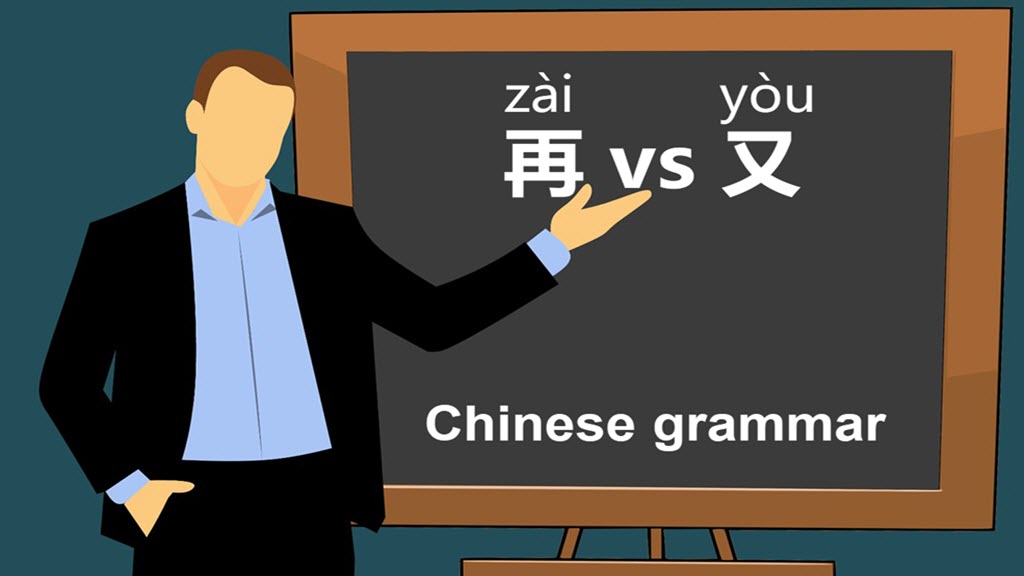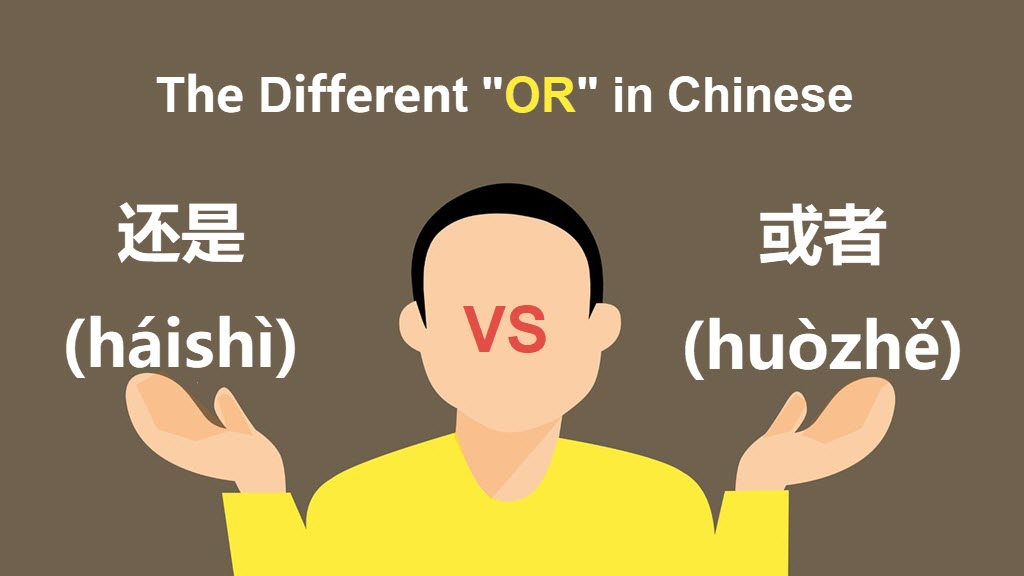
1. Differences between “再” and “又”
"Again" in Chinese: 再(zài) and 又(yòu)
“再” and “又” both mean again, indicating the recurrence of the same action. However, “又” is used when the recurrence has happened and there is often a “了” behind, while “再” is used when the recurrence has not happened yet.
Examples:
这本书写得太好了,我昨天又看了一遍,以后有时间我要再看一遍。
This book is so well written that I read it again yesterday, and I’ll read it again when I have time.
我今天早上又迟到了。
I was late again this morning. (being late has already happened today)
你明天不要再迟到了。
Don’t be late again tomorrow. (Tomorrow has not come and being late has not happened)
那家饭店的菜很好吃,我今天中午又去吃了一次。
The food in that restaurant is delicious. I went there again for lunch today. (I went to the restaurant again for lunch today)
那家饭店的菜很好吃,我今天中午要再去吃一次。
The food in that restaurant is delicious. I’m going to there again for lunch today. (I’m going to the restaurant again for lunch today)
Note 1: Sometimes “又” can also used for recurrence that has not occurred yet, but the recurrence should be periodic and predictable. In this case, “了” can be dropped.
Examples:
今天公司的事情很多,看来我们今晚又要加班了。
We have a lot of work to do in the company today. It seems that we have to work overtime again tonight.
(working overtime is predictable because of a lot of work)
天气预报说明天又要下雨。
The weather forecast says it will rain again tomorrow.
(Raining again tomorrow is predicated by the weather forecast)
明天又是发工资的日子。
Tomorrow is payday again. (Wages are paid periodically)
Note 2: In certain context, “又” can imply some kind of emotion and express the anger, annoyance, impatience or excitement of the speaker.
你今天怎么又迟到了?
Why are you late again today? (anger)
唉,明天又是星期一了,真不想上班啊。
Alas, tomorrow is Monday again. I don’t want to work. (annoyance)
夏天到了,我又可以穿裙子了!
Summer is here and I can wear skirts again! (excitement)
再(zài) and 又(yòu) : "besides" / "in addition to" in Chinese
Both “再” and “又” also mean besides or in addition to, indicating supplement and addition. Similarly, when these two words are followed by a verb, “又” is used when the action of the verb has happened and “再” is used when the action of the verb has not happened.
Try to compare the sentences below:
我还了钱,又给了他一千美元利息。
I paid the money back and gave him one thousand dollars of interest. (“I” already gave him interest)
你把钱还了,再给他一千美元利息吧。
You pay the money back and give him one thousand dollars of interest. (“You” have not given him interest at this time)
他交了几万元的罚款,又坐了十年的牢。
He paid a fine of tens of thousands and spent ten years in prison. (He has already served his prison sentence )
他得交几万元得罚款,再坐十年的牢。
He has to pay a fine of tens of thousands and spend ten years in prison. (He has not served his prison sentence yet)
我吃了碗牛肉面,又喝了瓶啤酒。
I ate a bowl of beef noodles and drank a bottle of beer. (I already drank the beer)
我要吃碗牛肉面,再喝瓶啤酒。
I’ll have a bowl of beef noodles and a bottle of beer. (I have not drunk the beer)
2. Advanced uses of 又(yòu) and 再(zài)
“又… 又…” in Chinese sentence pattern
The sentence structure “又… 又…” can indicate the coexistence of two actions or states.
For example
这个苹果又大又红,看起来很好吃。
The apple is big and red. It looks delicious.
这个房子里又冷又黑。
Inside the house is cold and dark.
他像个小孩一样又哭又闹。
He is crying and screaming like a child.
“再” indicates more, to a higher degree.
我要是能再高点就好了。
If only I were a bit taller.
如果你来得再早点就能见到他了。
If you had come earlier, you would have seen him.
老板,能再便宜点儿吗?
Sir, can you do cheaper?
"Verb 1 + 再 + Verb 2" in Chinese sentence pattern
The pattern "…Verb 1 + 再 + Verb 2…" indicates that one action taking place after another one.
For example
我要把作业写完再出去玩。
I will finish my homework before I go out.
我习惯先刷牙再洗脸。
I am used to brushing my teeth before washing my face.
喝了这杯牛奶再去睡觉吧。
Drink this milk before you go to bed.
3. One more thing
Comparing “再” and “又” is an important grammar point in HSK 3. If you are preparing for the HSK 3 test or want to learn Chinese in an immersive and structured way, you can try our Chinese course for HSK level 3. Pass HSK 3 test guaranteed!

![How to Use 吧 (ba) in Chinese Grammar [Quick Guide]](https://www.everydaychinese.com/wp-content/uploads/2021/01/how-to-use-ba.jpg)



Comments